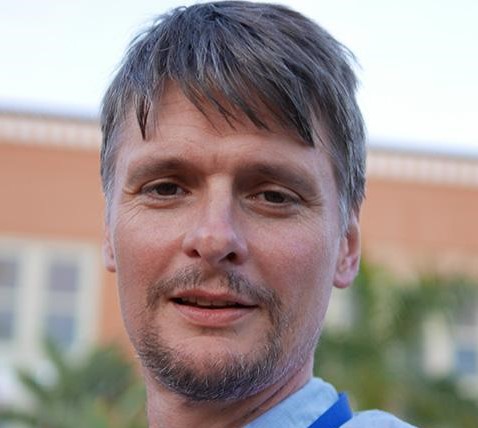
Submitted by Rachel Gardner on Mon, 22/06/2020 - 16:32
A new initiative at Cambridge will equip young researchers outside computer science with the skills they need to use machine learning and artificial intelligence techniques to power their research.
Supported by a donation from Schmidt Futures, a philanthropic initiative founded by Eric and Wendy Schmidt, the Accelerate Programme for Scientific Discovery will level the playing field for young researchers, providing them with specialised training in these powerful techniques, which have the potential to speed up the pace of discovery across a range of disciplines.
The programme will initially be aimed at researchers in STEMM (science, technology, engineering, mathematics and medicine), but will grow to include arts, humanities and social science researchers who want to use machine learning skills to accelerate their research.
The Accelerate Programme will be led by Professor Neil Lawrence, DeepMind Professor of Machine Learning.
 "Machine learning and AI are increasingly part of our day-to-day lives, but they aren’t being used as effectively as they could be, due in part to major gaps of understanding between different research disciplines," says Neil (pictured right). "This programme will help us to close these gaps by training physicists, biologists, chemists and other scientists in the latest machine learning techniques, giving them the skills they need while accelerating the excellent research already taking place at the University."
"Machine learning and AI are increasingly part of our day-to-day lives, but they aren’t being used as effectively as they could be, due in part to major gaps of understanding between different research disciplines," says Neil (pictured right). "This programme will help us to close these gaps by training physicists, biologists, chemists and other scientists in the latest machine learning techniques, giving them the skills they need while accelerating the excellent research already taking place at the University."
"As the intellectual home of Alan Turing, the father of artificial intelligence and modern computer science, Cambridge has long fostered technological innovation and invention," says Vice-Chancellor Professor Stephen Toope. "This programme will help ensure that Cambridge continues to be a beacon for the very best young global researchers, and that we're giving them the tools they need to thrive."
The five-year programme will be designed and delivered by four new early-career specialists, who will work with researchers from the Department of Computer Science and Technology as well as collaborators from industry. In the first year, the specialists will provide structured training in machine learning techniques to 32 PhD students and postdoctoral researchers, with training provided to a total of 160 PhD students and postdocs over the first five years of the programme. The specialists will also have the opportunity to pursue their own research interests as part of their fellowships.
The programme will also benefit from in-kind support from DeepMind. The world-leading British AI company, founded by Queens' College alumnus Demis Hassabis, has assisted in the development of the programme, and will offer programme participants guest lectures from DeepMind's research team and the opportunity to apply for internship positions.
"Machine learning and AI have the potential to revolutionise any number of fields, but there simply aren’t enough scientists with machine learning skills in those fields at the moment," says Professor Ann Copestake, Head of the Department of Computer Science and Technology. "This programme will combine Cambridge’s research depth and breadth with the unparalleled expertise in machine learning research we have here in the Department, to build a new type of research culture equipped to face the challenges and opportunities of the 21st century."
"We are delighted to support this far-reaching program at Cambridge," says Stuart Feldman, Chief Scientist at Schmidt Futures. "We expect it to accelerate the use of new techniques across the broad range of research as well as enhance the AI knowledge of a large number of early-stage researchers at this superb university."
One of the goals of the Accelerate Programme is to build a network of machine learning experts across the University. The PhD students and postdoctoral researchers who are trained through the Programme will share their knowledge with colleagues, building up capacity throughout Cambridge at scale.
Cambridge’s AI expertise has recently been expanded with the appointment of Dr Ferenc Huszár, who joins the University from Twitter, Dr Carl Henrik Ek, who is joining from the University of Bristol, and Dr Nicholas Lane who is joining from the University of Oxford.
- Text by Sarah Collins, Communications Manager (Research), University of Cambridge
- Image by Maxime Valcarce / Unsplash

